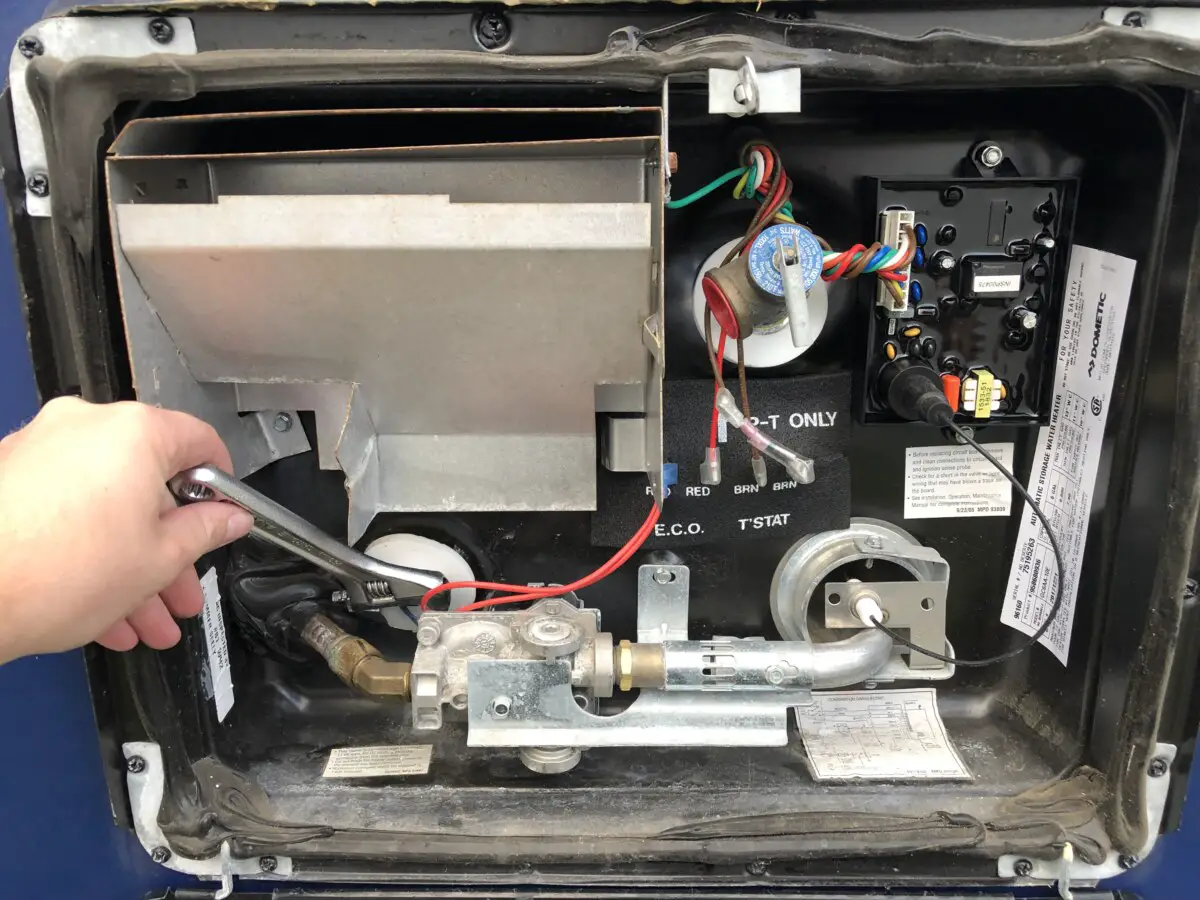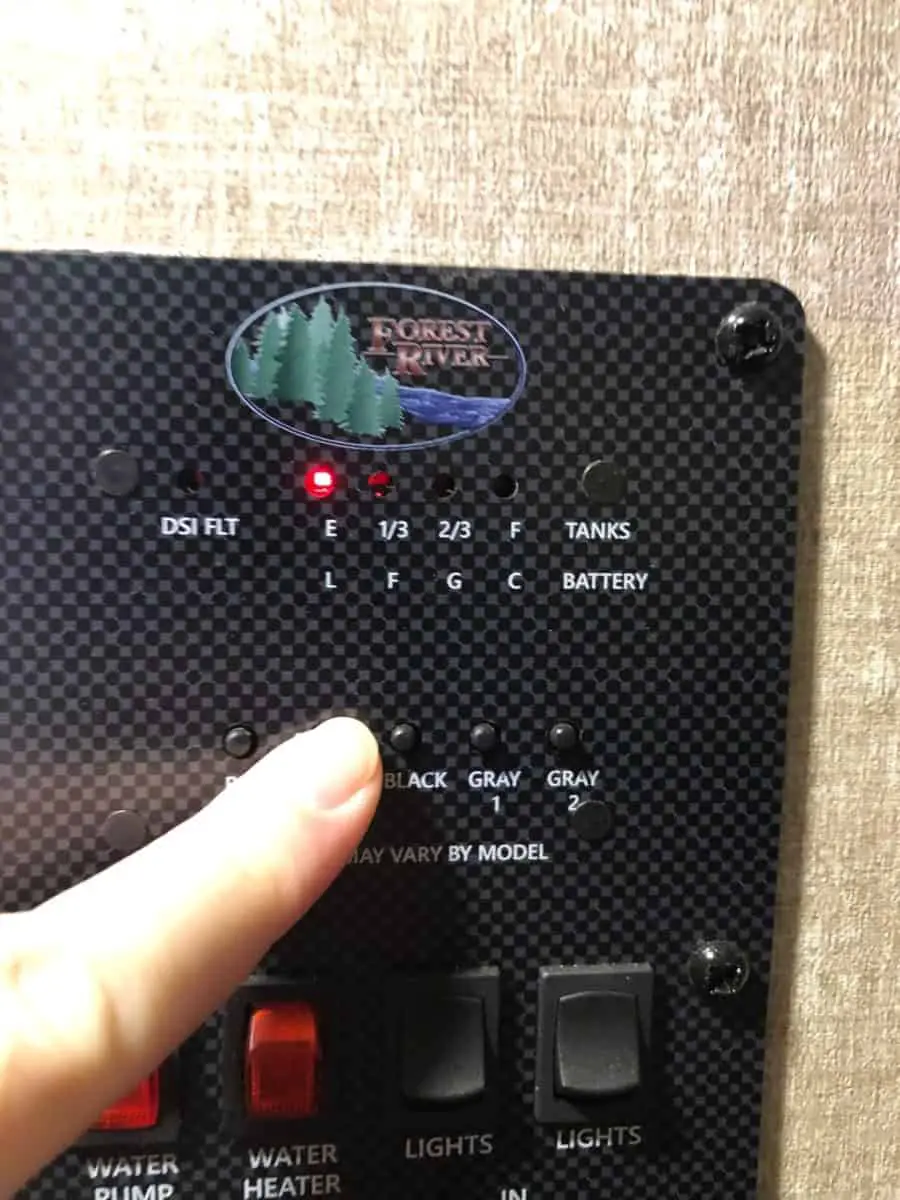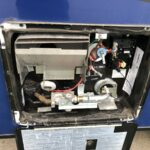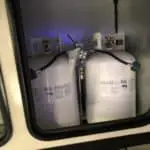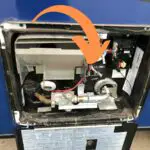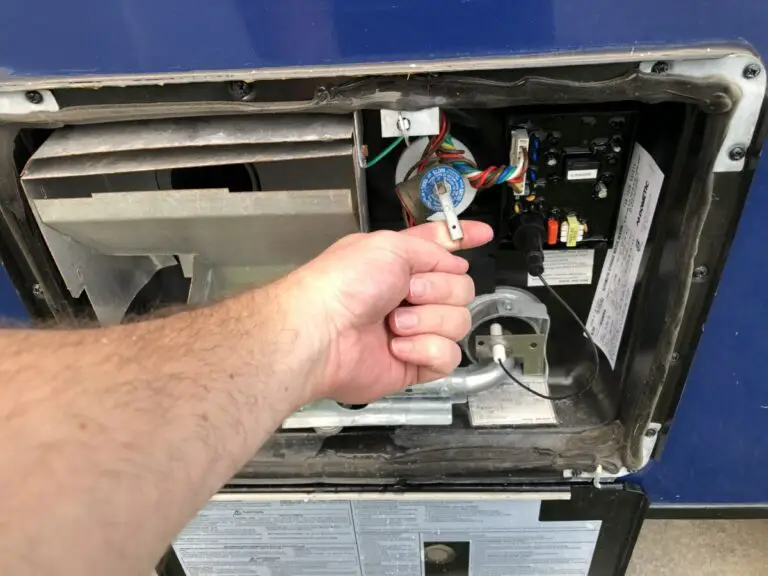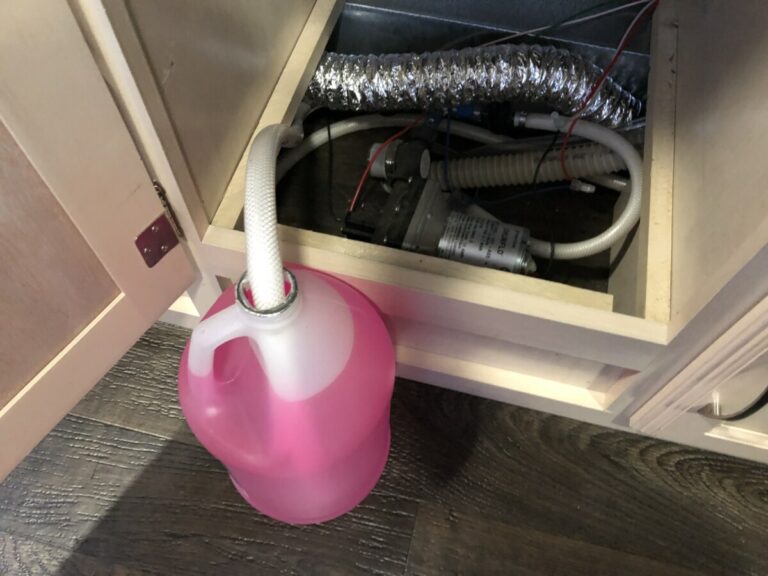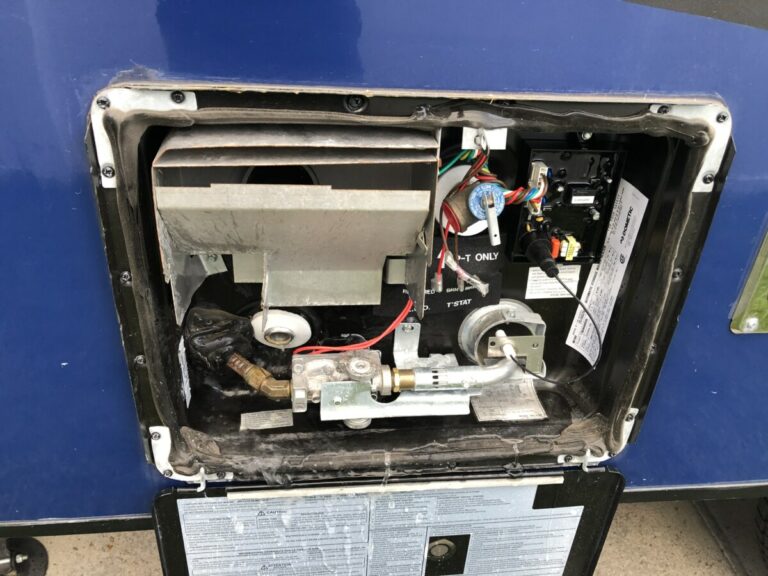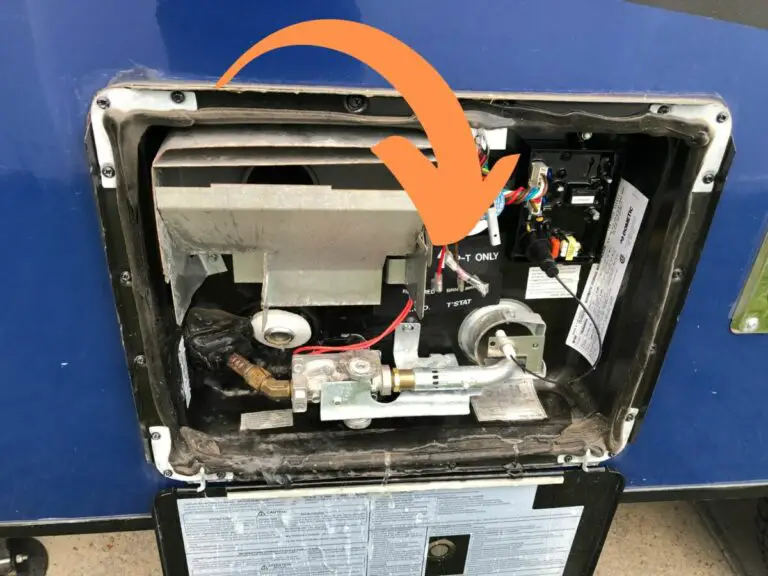Does a RV Water Heater Run On Battery? Debunking Common Myths
Hot water in an RV is one of the essential comforts you expect when you are on the road. But the road is full of expected and unexpected adventures! Suppose you find yourself disconnected from shore power on your next RV trip. In that case, you may wonder if your RV water heater will run on battery power.
An RV water heater does not run on battery power alone. It requires a source of propane or electricity to heat the water. However, some RV water heaters may have electronic ignition systems that use a small amount of battery power to ignite the propane or gas burner.
Keeping the hot water flowing makes for a better RVing experience, but when the time comes to switch to battery power from shore power for your RV, knowing if and how your RV water heater runs on battery power is important. Below you will find the information you need about RV water heaters running on batteries.
RV Water Heaters that Run on Battery and Propane: Exploring Power Sources and Efficiency
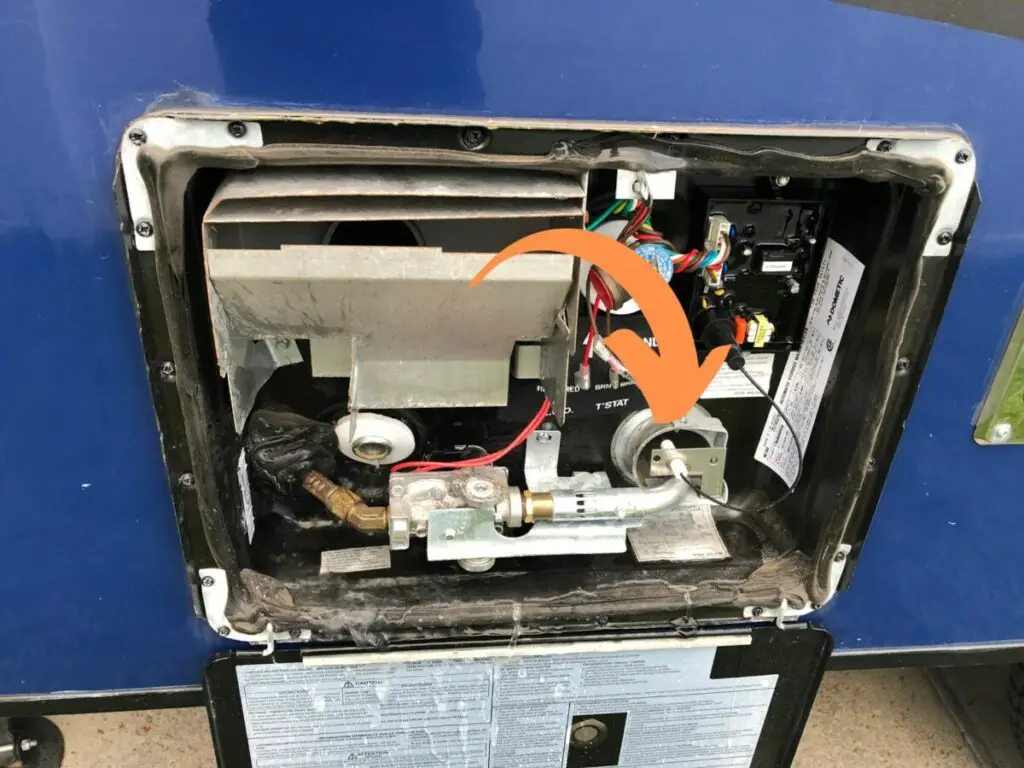
RV water heaters typically operate using propane, electricity, or both as their primary sources of power. For those who prefer to use their vehicle’s battery, it is essential to understand the functionality of these water heaters and the different types of power configurations available.
Depending on the model, an RV water heater may run off a 12-volt DC power source to power the circuit board, but need propane to actually heat the water, relying on the battery for ignition and operation. However, other units require a 120-volt AC power source, drawing energy from a generator, shore power, or an inverter connected to the battery.
Knowing the power requirements and compatibility of an RV water heater with the vehicle’s battery will help determine the most suitable one for specific needs and preferences. Additionally, understanding the available options for power sources and configurations can lead to more efficient energy usage and a better overall experience while traveling and living in an RV.
Understanding RV Water Heaters
Types of RV Water Heaters
There are primarily two types of RV water heaters: propane and electric. Propane water heaters use gas for heating, whereas electric water heaters rely on an electric heating element. Some water heaters are combination systems that can operate using both propane and electricity, giving users more flexibility and convenience in different situations.
How RV Water Heaters Work
Propane water heaters work by burning propane gas to heat water contained in a tank. The flame is typically ignited by a pilot light or an electric igniter. As the flame heats the water, a thermostat regulates the temperature. When the water reaches the desired temperature, the burner turns off automatically.
Electric water heaters utilize a heating element submerged in the water tank. As electricity passes through the element, it generates heat, which is transferred to the surrounding water. Similar to propane water heaters, a thermostat monitors the water temperature and switches off the heating element when the set temperature is reached.
RV water heaters typically store water in a 6 to 10-gallon tank. Once the hot water is used, it takes some time for the heater to replenish the supply. Tankless water heaters, which heat water on demand, are gaining popularity in the RV market due to their uninterrupted supply of hot water.
Factors Affecting Water Heater Performance
The performance of an RV water heater depends on several factors:
- Energy source: As mentioned earlier, water heaters can run on propane, electricity, or a combination of both. Propane-based water heaters usually heat water more rapidly as compared to electric ones. However, electric water heaters have the advantage of being quiet and emitting no exhaust fumes, making them suitable for indoor use.
- Tank size: A larger tank allows water to be heated and stored for later use. However, it takes longer to heat up and occupies more space in the RV.
- Outside temperature: Cold weather affects the performance of water heaters as it takes more energy to heat the water to the desired temperature.
- Water consumption: How quickly hot water is used plays a crucial role in determining the performance of an RV water heater. Taking longer showers or using multiple hot water appliances simultaneously can deplete the hot water supply more rapidly.
- Maintenance: Regular maintenance, such as cleaning the burner and replacing the anode rod, can help keep the water heater working efficiently and prolong its lifespan.
Understanding the factors affecting your RV water heater’s performance is essential to optimize its use and ensure a comfortable stay during your travels.
Alternative Power Sources for RV Water Heaters
If running an RV water heater on battery power and propane is not ideal, what other options are available? Here are a few alternative power sources to consider if you have a gas/electric model:
- Generator: A portable generator can be a reliable power source to run a water heater. However, generators can be noisy and require regular maintenance.
- Shore Power: Connecting to shore power at campgrounds or RV parks is the easiest and most reliable way to power an electric water heater.
How to Avoid Running Out of Hot Water
Running out of hot water is a common concern for RVers, especially while dry camping or with larger families. Here are some tips to help you avoid this issue:
- Monitor water usage: Keep track of your water usage while doing daily tasks such as dishes, showering, and using the sink.
- Limit shower time: Encourage occupants to take shorter showers to conserve hot water.
- Recharge time: Allow the water heater ample recharge time between uses, especially if you have an affordable or smaller sized water heater.
- Replenish the tank: Regularly top off the water in your tank and ensure the heating element has enough reserve to accommodate everyone’s needs.
Troubleshooting Common Issues
Common issues with RV water heaters can impact their performance and ability to maintain hot water consistently. Here’s how to tackle some of these issues:
- Cold weather: Insulate and protect your water heater from cold weather, which can reduce its efficiency. Proper winterizing, as discussed earlier, can help avoid this problem.
- Heating element: Check the heating element regularly to ensure it’s in good condition. If it needs replacing, opt for a reliable and compatible brand like Atwood or Suburban.
- Pump: If your pump is struggling to deliver consistent hot water, it may be time to repair or replace it. Consult with an RV specialist for the best advice to suit your needs.
- Power source: Verify that your water heater’s power source, whether it’s a battery or propane, has adequate supply and connection to maintain proper function.
By following these maintenance tips and being proactive with your RV water heater care, you’ll be better equipped to face any potential issues head-on and continue enjoying endless hot water on your adventures.
Frequently Asked Questions
Can a water heater run without electricity?
Yes, some water heaters can run without electricity. These are typically propane-powered water heaters, which utilize a built-in ignition system to heat the water. However, the control panel and safety features of the water heater may still require a small amount of electricity, usually provided by the RV’s battery.
How do RV water heaters operate?
RV water heaters operate on either electricity, propane, or both. Electric water heaters use an electric heating element, while propane water heaters utilize a propane burner. Some models offer a dual-fuel option, allowing you to choose between electricity and propane depending on your preferences and availability of each energy source.
Gas or electric RV water heaters?
The choice between gas or electric RV water heaters depends on personal preference and the availability of energy sources at your camping location. Gas water heaters typically heat water faster and work without the need for shore power. Electric water heaters, on the other hand, save propane and are generally quieter. Many RVs come equipped with a dual-fuel option, allowing you to switch between the two.
Should the heater be on continuously?
It is not necessary to have the heater on continuously, as modern RV water heaters are capable of quickly heating the water when needed. Most RV owners prefer to turn on the water heater approximately 30 minutes before they need hot water, and then turn it off once they are done using it.
Propane consumption of water heaters?
Propane consumption for RV water heaters varies depending on factors such as usage, the size of the water tank, and the efficiency of the heater. On average, a 6-gallon water heater can use approximately 0.5 to 1.5 pounds of propane per hour when in operation. To conserve propane, turn off the water heater when hot water is not needed.
Are tankless heaters suitable for campers?
Yes, tankless water heaters can be suitable for campers. They offer an on-demand supply of hot water and typically have a compact and lightweight design, making them an ideal choice for smaller RVs or those with limited space. Keep in mind that tankless water heaters may require a higher electrical output or propane supply for proper operation.
Be the first to be notified about FREE tips, hints, coupon codes, and email-exclusive information. All for FREE!

